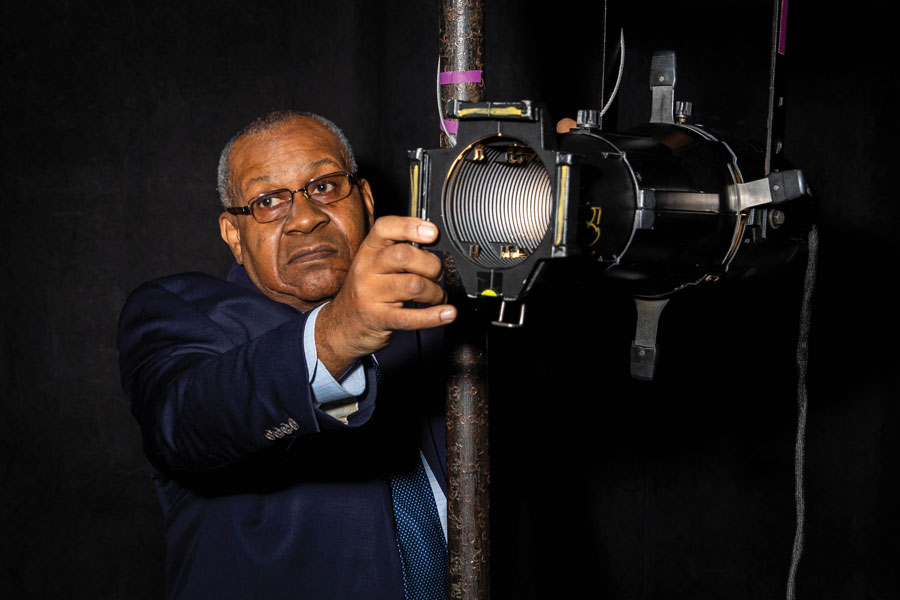“I’ve done a lot of shows.”
New York City-based lighting designer Allen Lee Hughes says this as he looks back on a career that spans five decades (and counting), which began when he was an intern at Washington, D.C.’s Arena Stage in 1969. By his tally, including theatre, dance, and other performance, the total number of designs he’s worked on is somewhere in the neighborhood of 400. For the man who has been the lighting designer for 10 Broadway shows—including the original Once on this Island, which earned him one of three Tony nominations—he mentions two things that keep the fire alive for him as he prepares to take another show to Broadway.
The first, he says, is the excitement around being able to work with new people on new scripts.
“Working with the people that I work with is exciting,” Hughes explains. “I believe a great deal in collaboration, so each collaboration keeps it exciting for me. Each set is different. Working with each director, working with each acting ensemble.”
Collaborations with directors like Douglas C. Wager, who he worked with multiple times at Arena Stage, as well as Pam MacKinnon, with whom Hughes joined forces for the Tony-winning revival of Who’s Afraid of Virginia Woolf, stood out to Hughes.
“Allen is the best,” MacKinnon effuses. “He is truly kind and dedicated, a brilliant teacher, and a real-deal artist. Lighting remains something of a mystery to me, but Allen has captured it.”
The second thing that keeps his creative fire alive can be found in the classroom. Hughes is a professor at NYU Tisch School of the Arts, where he himself received his master’s degree. “The other thing that keeps it fresh is students,” Hughes says, and “knowing that my students are watching and learning from what I achieve.”
For current students, those achievements include seeing Hughes in preparation for the Broadway debut of Charles Fuller’s A Soldier’s Play, directed by Kenny Leon, which begins previews on Dec. 27 for a Jan. 21 opening at Roundabout Theatre Company’s American Airlines Theatre. But in addition to the work of his you can see onstage and in playbills, Hughes’s legacy extends across the country, thanks to Arena Stage founding artistic director Zelda Fichandler.
Fichandler, also a cherished Hughes collaborator, started a fellowship program at Arena Stage and named it after Hughes. Arena’s program, founded in 1990, was created to increase diversity in theatre by helping to develop the next generation of theatre professionals of color. In his years in the industry, Hughes says he’s seen the climate for designers of color cool and warm over the years. Now he’s finally seeing those designers get their shots.
“It was fitting to name this program for someone who began their career in the same way that the Fellows would,” says current Arena Stage artistic director Molly Smith. “I have always admired Allen Lee Hughes’s passion and am proud of his long-term relationship with Arena.”
Since the founding of the Hughes Fellowship, Smith notes, it has mentored more than 700 Fellows, with alumni including artistic director Jamil Jude (of Kenny Leon’s True Colors Theatre Company), Obie-winning director Lileana Blain-Cruz, and Oregon Shakespeare Festival director of literary development and dramaturgy Amrita Ramanan.
“I was very honored to have it named after me,” Hughes says. “I just hope that I can live up to the high ideals.”
CORRECTION: Douglas C. Wager’s first name was misspelled in a previous version of this article.





